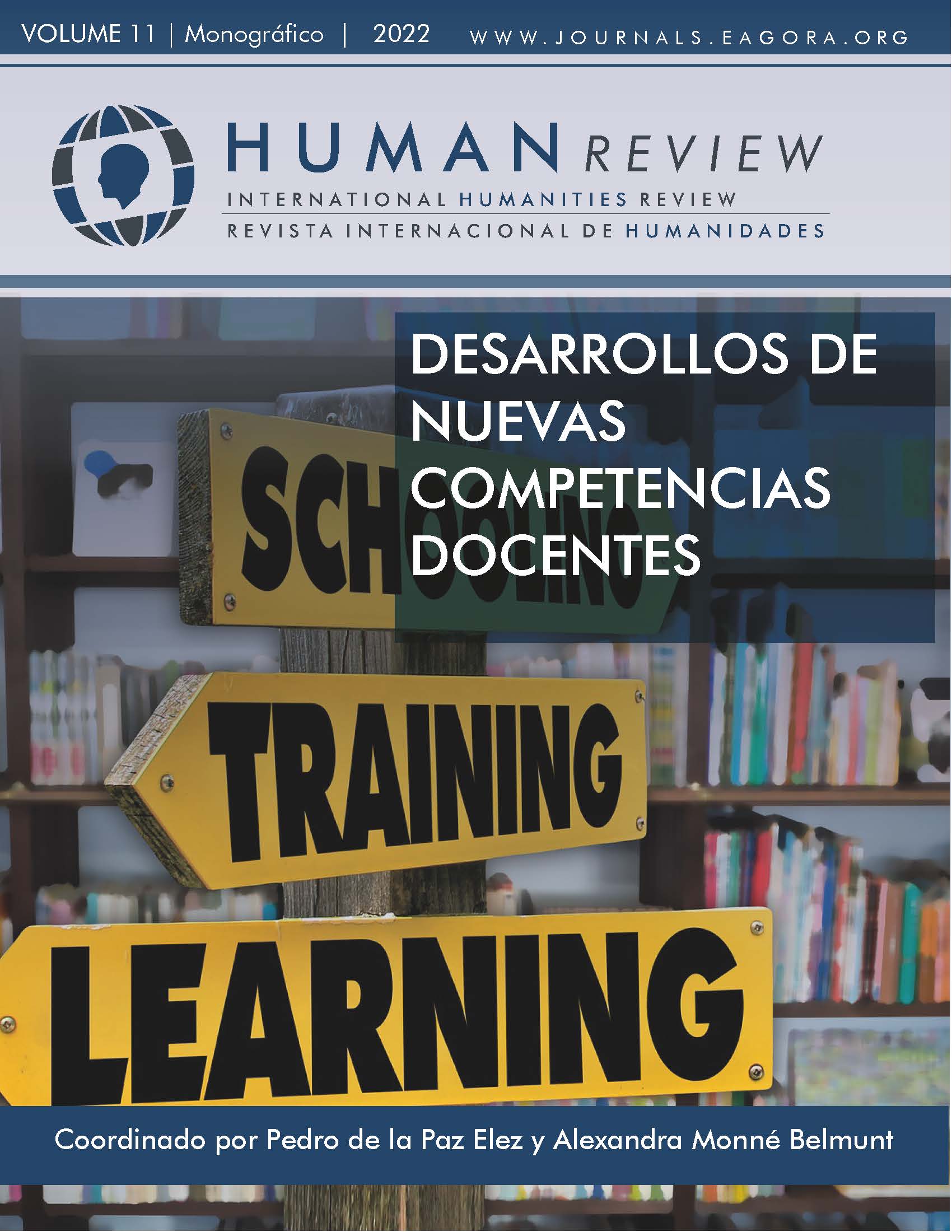Drama activities for the development of students’ oral skills in english
DOI:
https://doi.org/10.37467/revhuman.v11.3841Palavras-chave:
Theatre, Oral skills, Primary Education, English as a foreign language, Cooperative learningResumo
This paper aims to apply drama tasks (Gerard Finger, 2000) in the English class- room, which will add dynamism to the classroom, for the development of students’ oral competences. The aim is to work with drama in the Primary Education class- room through a series of tasks to improve oral communication, teamwork skills and to foster students’ self-esteem and confidence when producing oral language. This project addresses pupils in the sixth level of Primary Education. Theatre is a very versatile tool that provides many resources and learning, helping to improve aspects such as corporal and oral expression and cooperative work.
Referências
Blanco Martínez, A. (2016). Posibilidades educativas del teatro. [Tesis Doctoral]. Universidade da Coruña. https:// acortar.link/nFWeXC
Chalmers, D. (2014). Drama 3-5: A practical guide to teaching drama to children in the Early Years Foundation Stage (2nd edition). Routledge.
Clipson-Boyles, S. (2013). Teaching Primary English Through Drama: A practical and creative approach. Routledge.
Díaz, N. Y., Quiroga, E. L., & Buadas, C. R. (2014). El desarrollo de la autonomía de los alumnos de inglés con fines específicos, Cuadernos dela Facultadde Humanidadesy Ciencias Sociales. Universidad Nacionalde Jujuy, (46), 179-194. http://www.scielo.org.ar/scielo.php?script=sci_arttext&pid=S1668-81042014000200010
Farmer, D. (2011). Learning Through Drama in the Primary Years. Drama Resource.
Gerard Finger, A. (2000). The Magic of Drama: An Oral Performance Activity Book. Full Blast Productions.
Gil Bartolomé, M. M. (2018). El teatro como recurso educativo en el aula de Primaria/ The theater as an educational resource in the Primary classroom. ARTSEDUCA, 21, 10-33. http://www.e-revistes.uji.es/index.php/artseduca/article/view/3524
Grugeon, E., Dawes, L., Smith, C., & Hubbard, L. (2000). Teaching Speaking and Listening in the Primary School. David Fulton Publishers.
Goodwin, J. (2006). Using Drama to Support Literacy. Activities for Children Aged 7 to 14. Paul Chapman Publishing. Heathfield, D. (2005). Spontaneous Speaking: Drama Activities for Confidence and Fluency. Delta.
Kagan, S. (1989). The structural approach to cooperative learning. Educational leadership, 47(4), 12-15. https:// eric.ed.gov/?id=EJ400491
Kempe, A., & Holroyd, J. (2004). Speaking, Listening and Drama. Routledge.
Luelmo del Castillo, M. J. (2020). Autonomía del alumno: implicaciones para el profesor. Ensayos: revista de la Escuela Universitaria de Formación del Profesorado de Albacete, 35 (2), 267-280. https://redined.educacion.gob.es/xmlui/handle/11162/212407
Mata Anaya, J., Núñez Delgado, M. P. & Rienda Polo, J. (Coords.). (2015). Didáctica de la lengua y la literatura. Ediciones Pirámide.
Nuñez Delgado, M. P. (2001). Comunicación y expresión oral: Hablar, escuchar y leer en Secundaria. Narcea, s. a. de ediciones.
Pavis, P. (2002). Diccionario del teatro. Dramaturgia, estética, semiología. Paidós.
Safont, P. & Campoy, M. C. (Eds.). (2002). Oral Skills: Resources and Proposals for the Classroom. Universitat Jaume I. Woolland, B. (1993). The Teaching of Drama in the Primary School. Routledge.
Wolland, B. (2010). Teaching Primary Drama. Routledge.
Downloads
Publicado
Como Citar
Edição
Seção
Licença
Os autores/as que publicam nesta revista concordam com os seguintes termos:
- Os autores/as terão os direitos morais do trabalho e cederão para a revista os direitos comerciais.
- Um ano após a sua publicação, a versão do editor estará em acesso aberto no site da editora, mas a revista manterá o copyright da obra.
- No caso dos autores desejarem asignar uma licença aberta Creative Commons (CC), poderão a solicitar escrevendo a publishing@eagora.org.









